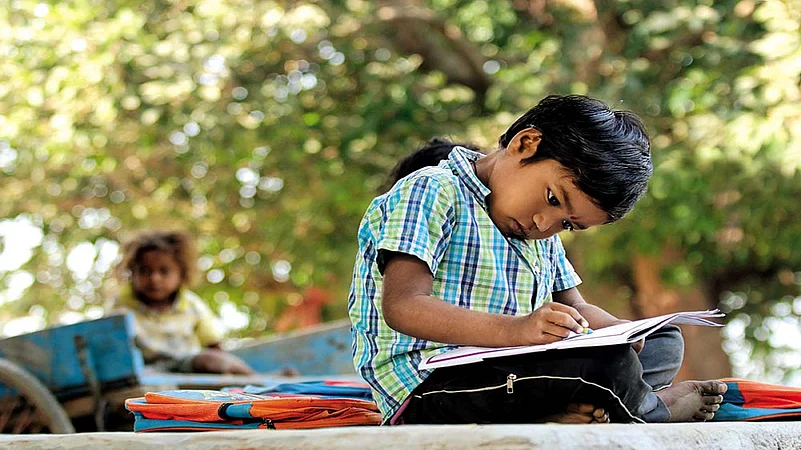The irrepressible Mark Twain once famously said: “I have never let my schooling interfere with my education.” His words have proved prophetic, though no one could have imagined the world-altering context that has seen education continue without physical schools as we know it.
The raging pandemic that has halted the world in its tracks, and has now pretty much immobilised India, has left everyone grappling with the surreal, dystopian nature of the new normal. It has left shattered lives, families and communities in its wake, and has been especially devastating in its impact on children. With schools experimenting with online and hybrid education, teaching and learning as we knew it has changed, and probably forever. Whether this change is for the better or not is a longer debate for another day, in a post-pandemic world. Right now, the imperative is to work out the logistics of this reality to ensure that no child or family is left out of the learning ecosystem. The economic realities of a country like ours means that while a micro percentage of children and families can easily access all the tools to navigate the world of digital learning, a larger mass of the population grapples to access even the basics, whether it’s a stable internet connection, or a smartphone. In many huts and one-room tenements, even the idea of electricity—let alone connectivity, or a quiet learning space for a child—is an unimaginable luxury.
How then have schools navigated this hitherto unknown reality? And more importantly, how are our young children and young adults coping? A myriad questions continue, with no one answer fitting all.

A sudden change and a constantly fluctuating, unpredictable new normal cannot but create anxiety in all, and our children are no different. If younger children have exhibited stressful reactions such as bedwetting, disturbances in eating and sleeping patterns and outbursts, older students have struggled with missing out school life markers that they’ve been looking forward to: sports events, graduation day, college visits, internships and the sheer joie de vivre of being together as the seniormost group on campus. At a stage in life when they’re naturally expected to explore independence from parents, they are trapped at home with the family they’re supposed to be gaining their independence from, while being cut off from the larger community and peer relationships that enable self-actualisation. Doctors report that they are seeing feelings of depression, helplessness, low energy, loss of interest in hobbies and hopelessness. Counsellors, doctors, families, schools and communities have come together to support children. Online counselling, fun community events on Zoom, and teacher connect time have been put in place to scaffold children as best as possible. There is no dearth of online resources to seek help from or stay meaningfully engaged with.
A larger question going forward is: in the post-pandemic world, what will education look like? Governments, education systems and school managements are ceaselessly engaging in dynamic interactions to chart the way forward. Around the world, they are urgently recalibrating outdated systems and modernising them for the 21st century. Educators have had an opportunity to reimagine learning and equip students with the cognitive, creative, social, emotional and physical skills required to navigate the future. How will exams be held? Will we go back to the comfort zone of physical schooling and exams, or will it be a hybrid blend? How will uniformity of implementation be handled in a country as economically and socially diverse as ours? Can we ensure a level playing field, or at least one with fewer hurdles? The integration of technology in classroom teaching has compelled educators to upgrade their technical skills. This has not been without its challenges, and more so, has come at the cost of stressed-out educators. They were already struggling to deal with the pandemic, often in their own immediate and extended families, and at the same time be a supporting scaffold to students.

Learning management systems (LMS) help teachers deliver online lessons, share reading materials and grade assignments. These platforms can streamline much of the work for teachers and assist with tracking student progress and connecting with parents. Virtual Reality (VR), which creates an immersive 3D environment that a user can explore, and Augmented Reality (AR), which superimposes digital elements such as visuals, sound and text onto a user’s surroundings, are both here to stay.
While a shaken and stirred world awaits better times sooner rather than later, the digital space continues to entertain with memes and cartoons to keep the spirits high. May prayers and humour get us through this challenging time.
The pandemic that has ravaged the world for more than a year has particularly been an immense challenge for education. Yet may it become a ransformative watershed event to build more equitable and resilient education systems of and for the future. All stakeholders need to supportively collaborate because reforming our education systems and reimagining learning can wait no more.
If not now, then when
If not us, then who.
Manika Sharma is Director, The Shri Ram Schools





















